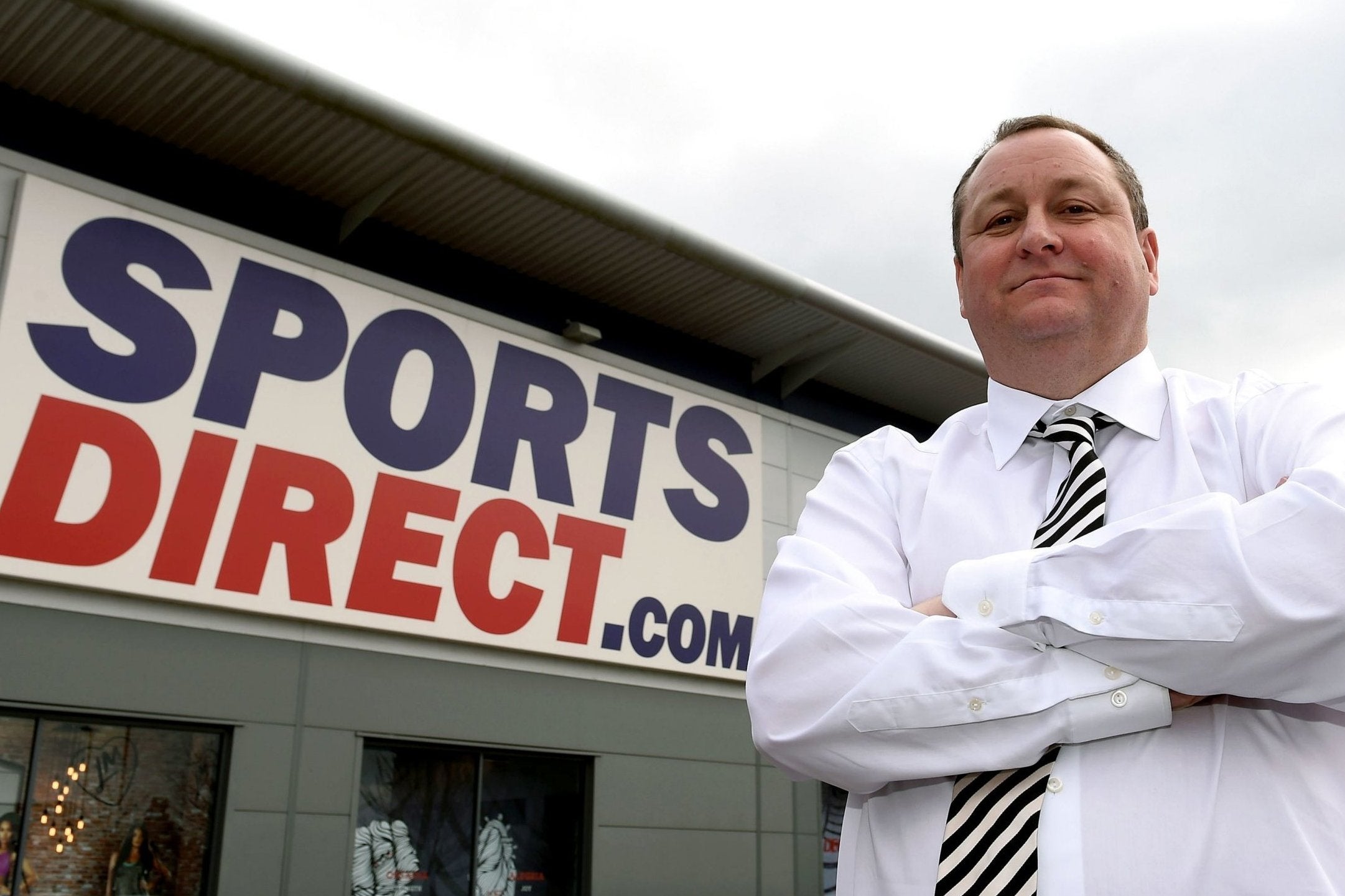Why Sports Direct delaying its results is a problem
Inside Business: Investors haven’t had an update on trading since December

The obvious inference from Sports Direct announcing a delay to its results while suggesting all might not be well with House of Fraser (HoF), the department store chain it bought out of administration, is that the empire is starting to crack.
Founder and generalissimo Mike Ashley, who owns 61 per cent of the shares, is now spinning a dizzying number of plates. Yet another one was announced alongside the delay: the group said it had formally taken control of Game Digital. So something like this was always on the cards.
That was the view of the City and investors duly ran for cover. Sports Direct’s shares lost more than ten per cent within minutes of the stock market opening.
But that’s not the most troubling thing about the company’s announcement.
Investors not named or in the employ of Mike Ashley haven’t had an update on how their company is doing since December. In the interim, it has been as busy as a sports coach in the days leading up to the start of a new season, butting heads, gobbling up businesses, buying back shares.
Sports Direct said the reasons for the delay were that integrating HoF into the sprawling retail empire had created “complexities” at a time when auditors overseeing the preparation of company results are facing additional scrutiny from the Financial Reporting Council (FRC), particularly Grant Thornton, Sports Direct’s auditor.
It had a rocket fired at it by the watchdog last week. The FRC said only half the firm’s audits were rated as good or requiring limited improvement during its most recent review. One in four had failed to pass muster over the last five years. This landed the firm on the accountancy naughty step.
Those excuses are ostensibly plausible. The problem came with final part of the explanation for the delay, the reference in the stock exchange announcement to “uncertainty as to the current trading performance” of HoF.
Usually the word “uncertain” is code for “bad”. You never see it used when a company’s business is going like the clappers but it isn’t quite sure whether where the best description for its permanence should fall in a range between “better than expected” and “yowza”.
But how bad? There’s a big difference between trading being at, say, the bottom end of the company’s or the market’s expectations and the roof falling in.
And what’s going on at the rest of the business?
Apparently a number of areas are being looked at which could “materially affect guidance”. But which areas? Nobody outside of Sports Direct knows, so the City was left with no option but to assume the worst.
It was a busy morning for Sports Direct announcements. Another concerned the share buyback programme it announced in April. The company said it spent just shy of £150,000 buying 56,368 shares on 12 July. It’s part of a rolling programme handled by independent brokers.
That’s small beer for a company of Sports Direct’s size, but still, thanks to the results’ delay, and the City fears about the reasons for it, the next tranche will be a lot cheaper.
For a public company not to offer more information to allow its investors to take an informed view like this really is, to my mind, unconscionable. Millions of ordinary people are exposed to it through their savings and investments after all.
It’s an issue that really ought to be addressed by regulators and if the rules don’t allow that they need to be tightened. Trouble is, they seem to have little appetite for involving themselves in that sort of fight.
Join our commenting forum
Join thought-provoking conversations, follow other Independent readers and see their replies
Comments